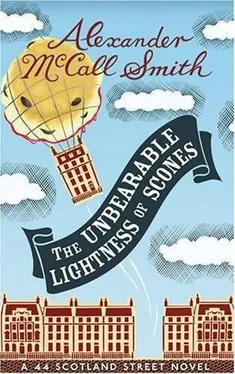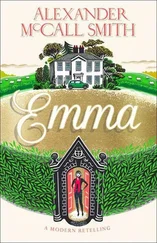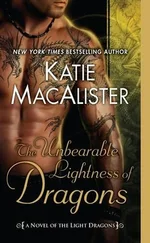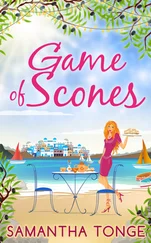Alexander Smith - Unbearable Lightness of Scones
Здесь есть возможность читать онлайн «Alexander Smith - Unbearable Lightness of Scones» весь текст электронной книги совершенно бесплатно (целиком полную версию без сокращений). В некоторых случаях можно слушать аудио, скачать через торрент в формате fb2 и присутствует краткое содержание. Жанр: Триллер, на английском языке. Описание произведения, (предисловие) а так же отзывы посетителей доступны на портале библиотеки ЛибКат.
- Название:Unbearable Lightness of Scones
- Автор:
- Жанр:
- Год:неизвестен
- ISBN:нет данных
- Рейтинг книги:4 / 5. Голосов: 1
-
Избранное:Добавить в избранное
- Отзывы:
-
Ваша оценка:
- 80
- 1
- 2
- 3
- 4
- 5
Unbearable Lightness of Scones: краткое содержание, описание и аннотация
Предлагаем к чтению аннотацию, описание, краткое содержание или предисловие (зависит от того, что написал сам автор книги «Unbearable Lightness of Scones»). Если вы не нашли необходимую информацию о книге — напишите в комментариях, мы постараемся отыскать её.
Unbearable Lightness of Scones — читать онлайн бесплатно полную книгу (весь текст) целиком
Ниже представлен текст книги, разбитый по страницам. Система сохранения места последней прочитанной страницы, позволяет с удобством читать онлайн бесплатно книгу «Unbearable Lightness of Scones», без необходимости каждый раз заново искать на чём Вы остановились. Поставьте закладку, и сможете в любой момент перейти на страницу, на которой закончили чтение.
Интервал:
Закладка:
But when Cyril awoke from his brief nap, the problem that confronted him was not one of understanding what was being said over the table, but what he saw underneath, down at dog level, close to the floor. For there before him, only inches away, were Matthew’s ankles; half clad in socks, half exposed. It was a sight of which Cyril had dreamed, and in some of his dreams he had acted. This was Cyril’s temptation, and it was an immensely strong one. Indeed, had Mephistopheles himself concocted a challenge for Cyril, he could not have come up with a stronger, more tempting enticement. Matthew’s ankles were Sirens, and they beckoned from the rocks of his ruination.
He could not resist. For years he had gazed upon these ankles and restrained himself. But now he knew he could do that no longer. His life would soon be over; dogs did not last all that long, and he wanted to do this before he passed beyond temptation. So, suddenly, and without giving Matthew any warning, Cyril moved forward and nipped Matthew’s right ankle; not too hard – he liked Matthew – but enough for Matthew to give a start and look down.
Cyril looked up, his jaws still loosely fixed around the ankle; he looked up into Matthew’s surprised eyes. This was the end; Cyril knew there would be shouting and he would be beaten with a rolled up copy of The Scotsman . He would be in disgrace, perhaps forever. This was truly the end.
Matthew stared at Cyril. He opened his mouth, ready to say something, to shout out in outrage even, but he did not. He looked down upon Cyril and then, reaching down, he gently pushed him away. He did not want Cyril to be punished. He said nothing.
Thus we forgive one another; thus reconciliation and healing begin.
99. A Civilised Menu
Domenica rose early that Saturday and dressed with care. She liked the idea of dressing with care, a notion she had come across in a Michael Longley poem addressed to Emily Dickinson, in which he described her as “dressing with care for the act of poetry.” She would dress with care for the social act that lay before her: the entertaining of her friends to dinner.
The choice of courses was an important one. Domenica was not an enthusiastic cook, in the sense that she did not derive a great deal of pleasure from cooking; but she was a good one. And the meal her guests would be given that evening would give them no cause for complaint. It would have an Italian flavour, of course; that was the cuisine with which she felt most comfortable and the one for which the ingredients were the most readily available in Valvona & Crolla.
And the guest list was chosen with equal care. There were several invitations that had to be repaid, and others that would be allocated purely on the basis of merit. James Holloway would come, of course; and Judith McClure and Roger Collins; and Michael and Mona Shea; and the Duke of Johannesburg; Pippa and Hugh Lockhart from round the corner; and Andrew and Susanna Kerr; and… She paused. She had noted down on a piece of paper the names of those who were invited and hoped that she had forgotten nobody; Angus, of course – no dinner party in Scotland Street would be complete without him; and Matthew and Elspeth. That would be enough; her table in the kitchen, when extended at each end with the addition of a bridge table, could seat up to sixteen in conditions of elbow proximity.
She had arranged to meet Angus in Valvona & Crolla that morning.
“I shall help you to choose the wine,” he had said. “Not that you can’t choose it yourself, it’s just that one can make so many mistakes when it comes to wine.”
She had accepted his offer. Wine was something Angus knew about, and she trusted his judgment. At Valvona & Crolla, though, when inspecting a range of obscure Puglian wines, Angus turned to her suddenly and said, “Domenica, why are we doing this? Why are we having all these people round to dinner?”
It might have been another occasion on which Mallory’s reply would have been called for: because they’re there, but she said instead: “Friendship.”
He had not expected that answer. “Just that?”
“Yes. Because a dinner party provides the ideal opportunity to sit with people. To talk to them.”
“You don’t think, then, that it’s simply a bourgeois ritual?”
Domenica smiled. “I might have thought that in the past,” she said. “No more, though. I now realise, I think, how important these bourgeois rituals are. Or all rituals, for that matter, bourgeois or not.” She reached out and took from him the bottle he had extracted from the shelf to show her. “Bari, I see. Do you know what you can find in Bari, Angus?”
Angus shrugged. He knew little of the Italian south, even if he liked its wines.
“The Bones of Father Christmas,” said Domenica. “Santa Claus, no less, or Saint Nicholas of Myra, to give him his full title. He was the basis of the Santa Claus legend, and they keep his relics in a candy-striped box in the Church of San Nicola in Bari.”
Angus was busy examining the wines; only half-listening.
“There is so much to see in Italy,” Domenica continued. “The Holy House in Loreto, for example. That’s the Virgin Mary’s house. It was carried over from the Holy Land by angels, I believe.”
“How very remarkable,” said Angus, moving along the shelf to examine a small selection of Tuscan wines.
“But to return to rituals,” said Domenica. “In the Sixties we thought we could get rid of everything. Rituals were exposed as meaningless. Restraint was taken as a sign of inhibition. Personal authenticity was all. Behave as you wanted to. Liberate yourself.”
Angus nodded. Domenica was right about these things, he felt, and he was prepared to go along with her.
“Of course, we’re now finding out the consequences of all that,” said Domenica. “Look at the way people behave in the streets at night. Look at the rudeness, the discourtesy, the ugliness and violence of our public space.”
“Yes,” said Angus. “It’s very bad. Very bad indeed.”
“Yet anybody who points it out is laughed at. It’s very uncool, isn’t it, to point out that we are a society in dissolution?”
Angus nodded. His eye had been caught by a jar of artichoke hearts. “Yes,” he said. “Quite so.”
“And as for that Government minister who attacked the Proms,” said Domenica. “Don’t you despair? She said the audience was not inclusive. Since when, may I ask, has it become mandatory to have an audience which is representative of society at large? What an absurd idea. Sinister too.”
“There are some very unsettling people around these days,” agreed Angus. “People who tell us what to think. People who have no understanding of the concept of artistic freedom.” He paused. “Have you thought, Domenica, of doing a first course of tagliatelle with white truffle sauce? Look, here is some of that truffle paste. It’s not at all expensive, and it tastes delicious. It really does.”
“And then?”
“And then you can follow it with a fish stew. One of those strong Neapolitan ones. Octopus and the like.”
“I could,” said Domenica. “But returning to rituals, Angus – don’t you think they are the absolute cement of any society? Rituals and key institutions. And when you destabilise them, when you point out the emperor has no clothes, you find you’ve got a void where society used to be. Just a whole lot of individuals, all strangers to one another.”
“Undoubtedly,” said Angus. He looked at her. “But what are we going to do, Domenica? What’s the solution?”
“We have to recivilise society,” said Domenica quietly. “The whole of Britain: England, Scotland, the works, everything has to be recivilised. We have to rebuild. We have to re-create the civilisation we have so casually destroyed.”
Читать дальшеИнтервал:
Закладка:
Похожие книги на «Unbearable Lightness of Scones»
Представляем Вашему вниманию похожие книги на «Unbearable Lightness of Scones» списком для выбора. Мы отобрали схожую по названию и смыслу литературу в надежде предоставить читателям больше вариантов отыскать новые, интересные, ещё непрочитанные произведения.
Обсуждение, отзывы о книге «Unbearable Lightness of Scones» и просто собственные мнения читателей. Оставьте ваши комментарии, напишите, что Вы думаете о произведении, его смысле или главных героях. Укажите что конкретно понравилось, а что нет, и почему Вы так считаете.












